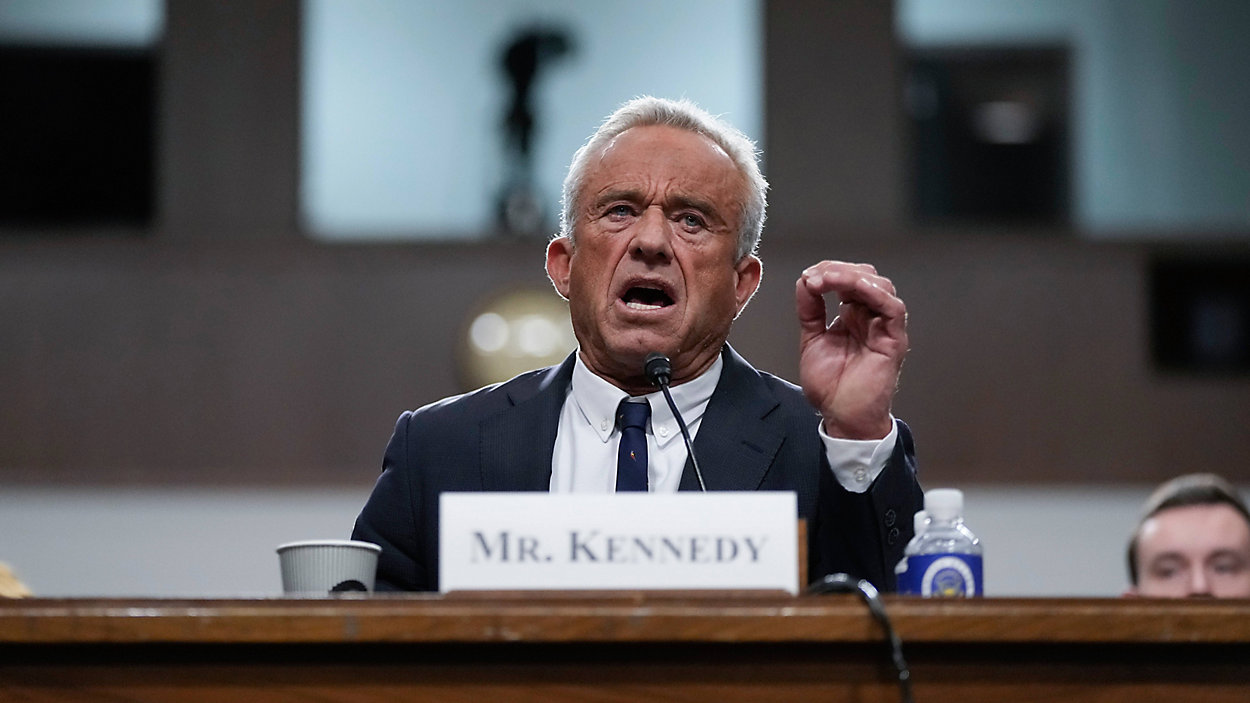Robert F. Kennedy Jr.’s nomination as the Secretary of Health and Human Services has sparked intense debate, particularly over his controversial views on vaccines. His stance on vaccine policies has long been a point of contention, with critics accusing him of spreading misinformation. However, in a surprising political maneuver, Kennedy recently secured the support of a senior Republican senator by making specific commitments regarding vaccines. This development has significant implications for the future of U.S. health policy and vaccine regulations.
Kennedy’s Background and Vaccine Controversies
Kennedy, a well-known environmental lawyer and political figure, has been vocal about his concerns regarding vaccine safety. He has questioned the efficacy and necessity of certain vaccines, drawing criticism from medical professionals and public health officials. His position has also led to accusations that he is fueling vaccine hesitancy at a time when public trust in health institutions is crucial.
Despite his controversial views, Kennedy has garnered support from some political factions that favor personal choice over vaccine mandates. His appointment as the Secretary of Health and Human Services raised alarm among pro-vaccine advocates, who feared that his influence might weaken national immunization efforts.

The Agreement That Secured the Vote
In an effort to gain confirmation support, Kennedy reportedly held private meetings with Republican senators, including a senior lawmaker whose backing was seen as pivotal. According to sources, Kennedy assured the senator that he would not pursue policies that undermine vaccine distribution and would instead focus on improving transparency and safety measures in vaccine development.
One of the key promises Kennedy made was to uphold existing vaccine programs, including childhood immunization schedules recommended by the Centers for Disease Control and Prevention (CDC). He also pledged to support federal funding for vaccine research while emphasizing the need for rigorous safety protocols. This strategic shift in rhetoric was enough to ease the concerns of the Republican senator, who ultimately pledged their vote for Kennedy’s confirmation.
Political and Public Reactions
Kennedy’s assurances have led to mixed reactions across the political spectrum. Public health experts remain skeptical, questioning whether his commitments will hold once he assumes office. Some argue that his past statements and affiliations with anti-vaccine groups indicate a deeper ideological opposition to widespread immunization efforts.
On the other hand, his ability to secure Republican support highlights the complex dynamics surrounding vaccine policies in the U.S. While some conservatives appreciate his emphasis on personal freedom, others are wary of his past activism. Meanwhile, Democrats who support strong public health measures continue to express reservations about his nomination.
Implications for U.S. Vaccine Policy
If confirmed, Kennedy’s tenure as the head of the Department of Health and Human Services could influence several key aspects of vaccine policy:
- Vaccine Safety and Oversight: Kennedy’s emphasis on transparency may lead to more stringent oversight in vaccine development and approval processes.
- Public Trust in Vaccines: His past rhetoric could either erode or reinforce public trust, depending on how he approaches vaccine advocacy while in office.
- State-Level Vaccine Mandates: His leadership may embolden efforts to challenge vaccine mandates at the state level, potentially leading to a more fragmented national vaccine policy.
- Funding for Immunization Programs: While he has pledged to uphold vaccine funding, critics worry about possible shifts in priorities that could affect program implementation.
Conclusion
Kennedy’s ability to secure a senior Republican senator’s vote marks a significant turning point in his confirmation process. While his reassurances have alleviated some concerns, many public health advocates remain vigilant about how his leadership will shape vaccine policies in the U.S. Moving forward, his actions will be closely scrutinized to determine whether he upholds his commitments or reverts to his previously controversial stance on vaccines. Regardless of the outcome, his confirmation process underscores the ongoing debate over vaccine policies and public health in the United States.
